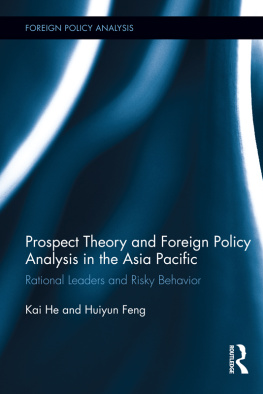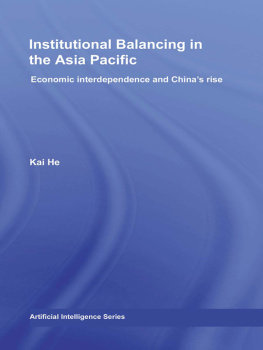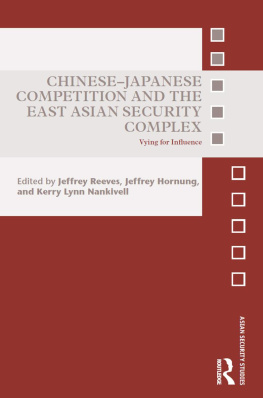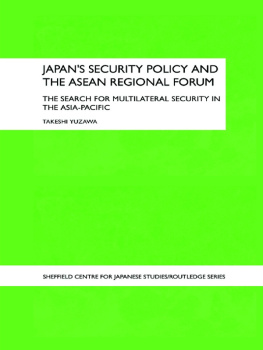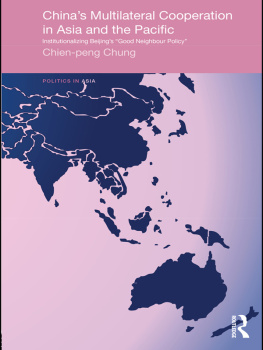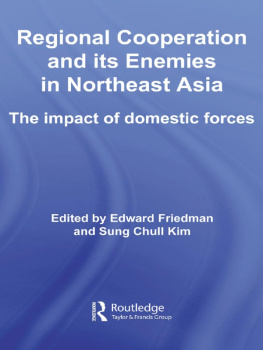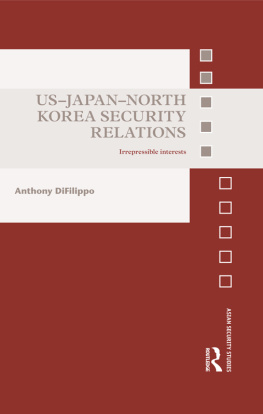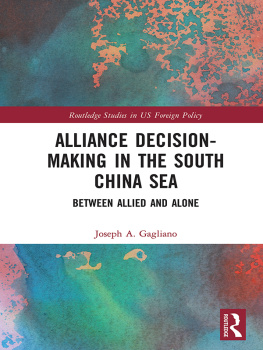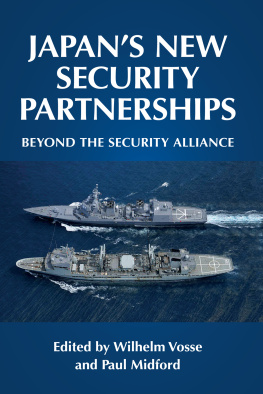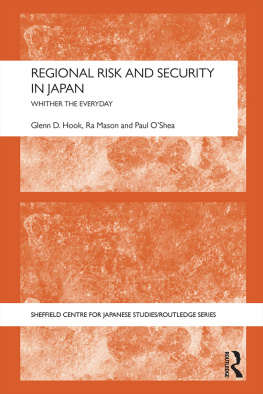The authors of this excellent book investigate puzzles in the domain of Asian security studies and contrast agent-centered solutions provided by neoclassical realist theory with system-oriented solutions provided by structural neorealist theory. Prospect theory is employed to enrich a rational choice account of internal and external constraints on security decisions in the Asia-Pacic region. The results are fruitful, coherent, and cumulative, advancing our understanding of the interplay of causal mechanisms within two traditions of international relations theory as well as two models of foreign policy decision-making theory.
Stephen G. Walker, Arizona State University
This book takes up a wide range of enduring and yet timely topics, such as the genesis of the U.S. hub-and-spokes alliance system in Asia and the evolving interactions regarding North Koreas nuclear program. He and Feng bring together these cases under a unifying theme of risk-taking (or risk-avoidance) behavior by leaders depending on whether these offi cials political legitimacy is under strain or relatively secured. The book makes a contribution to the study of Asia Pacic relations by extending an important non-rationalist theory to the study of signicant substantive and policy questions, and by adding to the growing body of literature on how prospect theory can inform our understanding about foreign policy decisions.
Steve Chan, University of Colorado, Boulder
Prospect Theory and Foreign Policy Analysis in the Asia Pacic
Why does North Korea behave erratically in pursuing its nuclear weapons program? Why did the United States prefer bilateral alliances to multilateral ones in Asia after World War II? Why did China become niceno more military coercionin dealing with the pro-independence Taiwan President Chen Shui-bian after 2000? Why did China compromise in the negotiation of the Chunxiao gas exploration in 2008 while Japan became provocative later in the Sino-Japanese disputes in the East China Sea? North Koreas nuclear behavior, U.S. alliance strategy, Chinas Taiwan policy, and Sino-Japanese territorial disputes are all important examples of seemingly irrational foreign policy decisions that have determined regional stability and Asian security.
By examining major events in Asian security, this book investigates why and how leaders make risky and seemingly irrational decisions in international politics. The authors take the innovative step of integrating the neoclassical realist framework in political science and prospect theory in psychology. Their analysis suggests that political leaders are more likely to take risky actions when their vital interests and political legitimacy are seriously threatened. For each case, the authors rst discuss the weaknesses of some of the prevailing arguments, mainly from rationalist and constructivist theorizing, and then off er an alternative explanation based on their political legitimacy-prospect theory model.
This pioneering book tests and expands prospect theory to the study of Asian security and challenges traditional, expected-utility-based, rationalist theories of foreign policy behavior.
Kai He is an Assistant Professor of Political Science at Utah State University and the author of Institutional Balancing in the Asia Pacic: Economic Interdependence and Chinas Rise (Routledge, 2009). He was a postdoctoral fellow in the PrincetonHarvard China and the World Program and has published in European Journal of International Relations, Security Studies, Review of International Studies, International Politics, Journal of Contemporary China, Asian Security, and The Pacic Review.
Huiyun Feng is an Assistant Professor of Political Science at Utah State University and the author of Chinese Strategic Culture and Foreign Policy Decision-Making: Confucianism, Leadership and War (Routledge, 2007). She was a Jennings Randolph Peace Scholar at the United States Institute of Peace and has published in European Journal of International Relations, Security Studies, The Pacic Review, Chinese Journal of International Politics, and Asian Perspective.
Foreign Policy Analysis
DOUGLAS A. VAN BELLE,Series editor
The Routledge series Foreign Policy Analysis examines the intersection of domestic and international politics with an emphasis on decision-making at both the individual and group levels. Research in this broadly dened and interdisciplinary eld includes nearly all methodological approaches, encompasses the analysis of single nations as well as large-N comparative studies, and ranges from the psychology of leaders, to the eff ects of process, to the patterns created by specic dynamic or contextual inuences on decision making.
The Unilateralist Temptation in American Foreign Policy
David G. Skidmore II
When Things Go Wrong
Foreign Policy Decision Making under Adverse Feedback
Charles F. Hermann
Prospect Theory and Foreign Policy Analysis in the Asia Pacic
Rational Leaders and Risky Behavior
Kai He and Huiyun Feng
First published 2013
by Routledge
711 Third Avenue, New York, NY 10017
Simultaneously published in the UK
by Routledge
2 Park Square, Milton Park, Abingdon, Oxon OX14 4RN
Routledge is an imprint of the Taylor & Francis Group, an informa business
2013 Taylor & Francis
The right of Kai He and Huiyun Feng to be identified as authors of this work has been asserted by them in accordance with sections 77 and 78 of the Copyright, Designs and Patents Act 1988.
All rights reserved. No part of this book may be reprinted or reproduced or utilised in any form or by any electronic, mechanical, or other means, now known or hereafter invented, including photocopying and recording, or in any information storage or retrieval system, without permission in writing from the publishers.
Trademark Notice: Product or corporate names may be trademarks or registered trademarks, and are used only for identification and explanation without intent to infringe.
Library of Congress Cataloging-in-Publication Data
He, Kai, 1973
Prospect theory and foreign policy analysis in the Asia Pacific : rational leaders and risky behavior / by Kai He and Huiyun Feng.
p. cm. (Foreign policy analysis)
Includes bibliographical references and index.
1. National securityEast AsiaDecision making. 2. East AsiaForeign relationsDecision making. 3. East AsiaStrategic aspects. 4. Risk managementEast Asia. I. Feng, Huiyun, 1971 II. Title. III. Series: Foreign policy analysis (Routledge (Firm))
UA832.5.H4 2012
355'.03305dc23
2012029828
ISBN13: 978-0-415-65621-4 (hbk)
ISBN13: 978-0-203-07736-8 (ebk)
To our lovely children: Alex and Bella
Figures and Tables
FIGURES
TABLES
Series Foreword
Prospect theory is a simple yet compelling concept that has vexed political scientists for years. There is ample evidence that people tend to become more risk acceptant when they frame a situation in terms of losses and more risk averse when they think in terms of gains or held assets, but that has never translated well into the study of foreign policy and international policy. Some significant attempts were made to bring prospect theory into the study of foreign policy, most notably in a series of conference roundtables and workshops held in the mid-1990s, but these efforts produced little applicable results. Most often, these efforts stumbled on the framing problem and ground to a halt. Before we can seriously talk about prospect theory in foreign policy, we first have to develop a theory of how and when the values in play are framed in terms of losses and gains.
Next page
